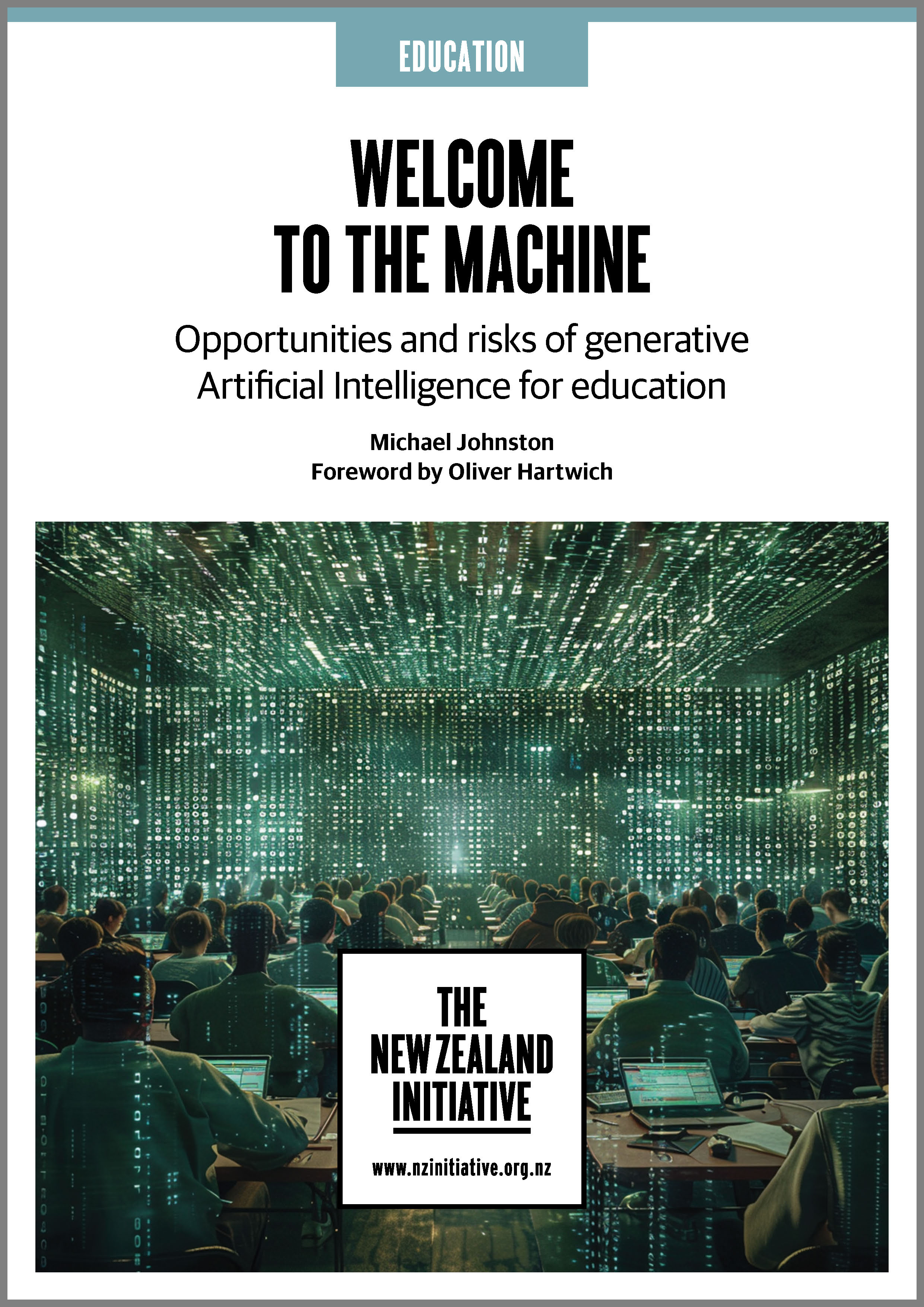This report calls for a science-based approach to using artificial intelligence (AI) in classrooms. This will help schools get the most out of AI while reducing risks to teaching and learning.
Welcome to the Machine: Opportunities and Risks of Generative Artificial Intelligence for Education, written by Senior Fellow Dr Michael Johnston, will help educators and policymakers navigate the rapidly evolving landscape of AI in education.
It finds that AI will not change what students need to learn. "It is still important for schools to teach key subjects like science, history and maths," says Dr Johnston. "Students still need to learn fundamental skills and acquire knowledge. Critical thinking and creativity depend on knowledge."
Drawing on scientific research on human learning, the report gives guidance on how AI can help students learn better, and how to avoid potential pitfalls. Educators must understand appropriate ways to use AI with their students. "If students use AI for tasks before they have learned the basics, it can slow down their learning later on," Dr Johnston said.
The report sees both risks and opportunities in using AI for education. AI can help teachers give better feedback and track student progress. But it should not replace the important relationships between students and expert teachers. "Learning involves human connection, where teachers skilfully impart knowledge. AI should be used to support teaching, not replace it," says Dr Johnston.
The New Zealand Initiative believes this report will help people make good decisions about AI in schools, to get the best outcomes for students.
Click here to download the two-page summary of Welcome to the Machine: Opportunities and Risks of Generative Artificial Intelligence for Education





